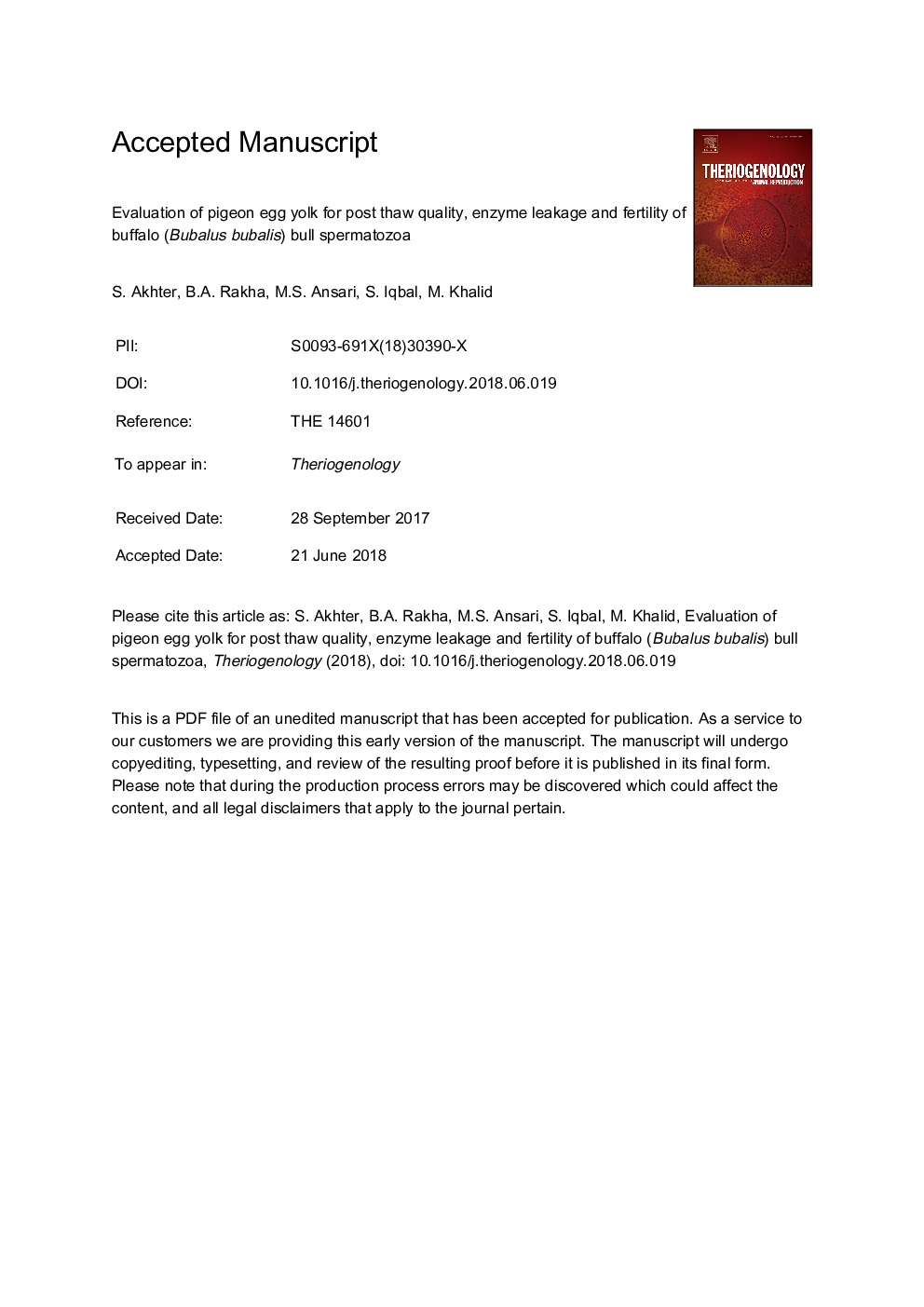| Article ID | Journal | Published Year | Pages | File Type |
|---|---|---|---|---|
| 8426202 | Theriogenology | 2018 | 24 Pages |
Abstract
Egg yolk is used as a cryoprotectant in semen preservation. However, its composition varies according to the species which may influence its effectiveness during the freeze-thaw process. Therefore, study was conducted to identify the optimum level of pigeon egg yolk (PEY) in Tris citric acid (TCA) extender for freezability and in vivo fertility of buffalo semen. Semen was collected at weekly intervals for a period of three weeks (replicates) from 6 Nili Ravi buffalo bulls (2 ejaculates/bull/replicate) and diluted with TCA extender (50â¯Ãâ¯106 motile spermatozoa mlâ1) containing 5%, 10%, 15% and 20% PEY or 20% CEY (control) and cryopreserved. Post-thaw sperm quality and extracellular enzymes leakage was assessed after thawing. Sperm motility, plasma membrane integrity, livability and viability was significantly higher in extenders containing 10% and 15% PEY compared to 5% PEY, 20% PEY or 20% CEY (controls). A dose-dependent decrease was recorded in the chromatin damage for the PEY, being lowest for the 15% and 20% PEY which was significantly less compared to controls (20% CEY). The extracellular GOT and LDH leakage was significantly lower (Pâ¯<â¯0.05) in extender containing 10% and 15% PEY compared to the controls. Semen collected from 2 bulls, cryopreserved in extenders containing 15% PEY or 20% chicken egg yolk was assessed for fertility after artificial inseminations. A total of 400 buffaloes were inseminated (100 inseminations/extender/bull). The overall fertility rate was significantly higher (Pâ¯<â¯0.05) with semen cryopreserved in extender containing 15% PEY (56%) compared to 20% CEY (42%; controls). In conclusion, pigeon egg yolk at 15% offers advantages over 20% chicken egg yolk in terms of in vitro post-thaw semen quality and in vivo fertility of buffalo.
Keywords
Related Topics
Life Sciences
Agricultural and Biological Sciences
Animal Science and Zoology
Authors
S. Akhter, B.A. Rakha, M.S. Ansari, S. Iqbal, M. Khalid,
